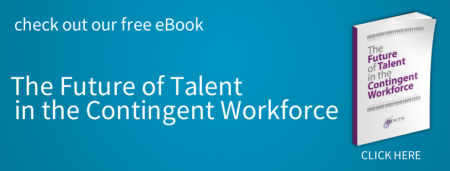 The placebo effect as a talent development and communications strategy
The placebo effect as a talent development and communications strategy
The placebo response is a well-studied and interesting medical phenomenon where a fake treatment can sometimes enhance a patient’s physical condition through a kind of psychosomatic reaction. In simpler terms, using an inactive substance like sugar, saline solution, or distilled water can lead to improvements in a patient’s health, driven by the belief that the “drug” is effective. Expectation, belief, and perceived benefits are crucial in determining the outcome of a placebo effect. The stronger a person believes they will gain from the treatment, the more likely they are to experience a benefit.
Effectively creating a placebo response isn’t just a processes restricted to the realm of clinical trials and the medical profession. Consider an interesting new study from researchers at the University of York in the United Kingdom. They successfully generated a placebo effect for a video game. In the experiment, participants played the same game twice. During the first round, the team told players that the map of the game’s environment was randomly produced by the system. The second time, subjects were informed that they would be treated to a richer experience through an update: an adaptive artificial intelligence engine would design and alter the map according to the players’ abilities.
Both games were identical. No adaptive AI existed. And yet, during the second round, players found the game more challenging and diverse. They rated it as “more immersive and entertaining.” None of the participants believed they were playing the same game over again. What this illustrates is the power that messaging, perception and vision play in shaping our attitudes. And in an era where employment brand, purpose and mission drive the aspirations and output of Millennials, we would do well to infuse our talent development and communication strategies with a sense of purpose.
A purpose-driven talent force
Over the past few years, an increasing number of employment surveys have discovered the critical role that belief in a company’s mission plays among top talent. According to Harvard Business Review, a recent report by Calling Brands revealed that: “Working for an organization with a clearly defined purpose is second only to pay and benefits in importance for employees, and ranks ahead of promotion opportunities, job responsibilities, and work culture. Two-thirds said a higher purpose would motivate them to go the extra mile in their jobs. A similar study by Net Impact showed that almost half of today’s workforce would take a 15% pay cut to work for an organization with an inspiring purpose.”
The article also invokes the storied and apocryphal tale of President Kennedy’s inspiring conversation with a NASA janitor during a visit to Cape Canaveral. It’s a favorite of motivational speakers and management training professionals. Kennedy, watching a custodian sweep the floors, allegedly asked the man about his role. The janitor replied, “I’m helping to put a man on the moon.”
The anecdote exemplifies the power of a “workforce motivated by a strong sense of higher purpose,” and how such a sharp message from leadership is essential to engagement. In some ways, it’s a benign placebo. Of course the janitor realizes he is not directly involved in the launch, direction, landing and return of the lunar craft. Yet, he also perceives that any actions undertaken by any worker in the agency contribute to the ultimate success of that mission. He believes this and takes greater pride and care in his job, with superior performance.
A Big Four accounting firm convinces employees they can change the world
KPMG, one of the world’s largest accounting firms, embarked on an initiative to motivate its workforce with a sense of greater purpose. It sought to convince its talent that they were changing the world. After doing so, it enjoyed one of its most lucrative financial years in history. The project began with a revised purpose statement: Inspire Confidence. Empower Change.
KPMG created a video that showed how the company had worked to “shape history” throughout its evolution. It explained KPMG’s role in managing the Lend-Lease Act in World War II to defeat the Nazis, how it resolved financial claims that paved the way for the release of U.S. hostages in Iran during the 1980s, and how it certified the 1994 election of South African President Nelson Mandela. KPMG then encouraged its talent to create posters and campaigns that demonstrated their involvement in company objectives that made profound contributions to the world at large. KPMG amassed an impressive collection of 42,000 stories. The results?
- An overwhelming majority of talent, 90 percent, said the initiative increased their pride in KPMG.
- After six months of the initiative, 85 percent of workers said KPMG was a fantastic place to work. That figure shot up to 89 percent after a year.
- And the same survey revealed that 76 percent of KPMG’s talent viewed their jobs as important and filled with meaning.
No roles were changed, no jobs redefined, no additional benefits or perks were offered. KPMG’s workers continued performing the same duties they had prior to the campaign. Yet with a heightened sense of purpose and mission, the organization saw a measurable rise in employee engagement, performance, commitment and morale.
Striving for purpose, not passion
This May, Ben Horowitz gave an unconventional commencement address to the graduating class of Columbia University. Horowitz is an influential author and co-founder of Andreessen-Horowitz, one of the leading venture capital firms operating in Silicon Valley. And the somewhat surprising message of his speech: “Don’t follow your passion, and the world is not going to hell in a handbasket and the class of 2015 is not required to save it.”
He then posed a provocative question to the audience: “Are you successful because you follow your passion or are you passionate about what you do because you’re successful?”
Horowitz offered four key points on why pursuing work based solely on passion can become a losing proposition:
- Passions are hard to prioritize. Some people have difficulty determining precisely where their passions lie: the arts, sciences, computers or a bit of everything. On the other hand, determining what we excel at is much easier.
- Passions change. Our interests and motivations at 20 tend to depart from those we embrace later in life.
- You may not be good at it. Many people would love to sing like Bing Crosby, dance like Beyoncé, paint like van Gogh, solve the riddles of the universe like Stephen Hawking or write like James Joyce. Our passions to engage in these pursuits don’t mean we’ll be proficient in them.
- It’s self-centered. Horowitz explained that over time, most people begin to focus on their legacies — on the positive outcomes of their life’s efforts, not on what they stood to gain from the world.
Ultimately, that led Horowitz to conclude: “Find that thing you’re great at. Put that into the world. Contribute to others. Help the world be better.” It’s a sentiment echoed by Wharton Professor Adam Grant. If our passions change or we discover we’re not good at them, the job we took by following those passions will become meaningless.
Meaning and mission — the secret formula for engagement, passion and performance
“Ask people what they want in a job,” Grant writes, “and meaningfulness looms large.” He cites nearly 40 years of research that demonstrates the struggle of talent to find meaning “when they lack autonomy, variety, challenge, performance feedback, and the chance to work on a whole product or service from start to finish.”
The jobs with the highest recorded levels of engagement and satisfaction are those where workers feel they’re making a difference in the lives of others. When business leaders follow the example of organizations such as KPMG, they’re tapping into the secret formula that gives talent purpose, meaning and passion. When we share a vision of our company that illustrates how its solutions benefit others, we motivate our workers to succeed and contribute. Although taking a job at which we we’re highly skilled may buck the old advice of “follow your passion,” a purpose-driven business culture can ignite a passion inside of us for the work we’re doing.
(Image Source: Dallas Morning News)
Read more: 5 Ways to Build a Team That Drives Success
